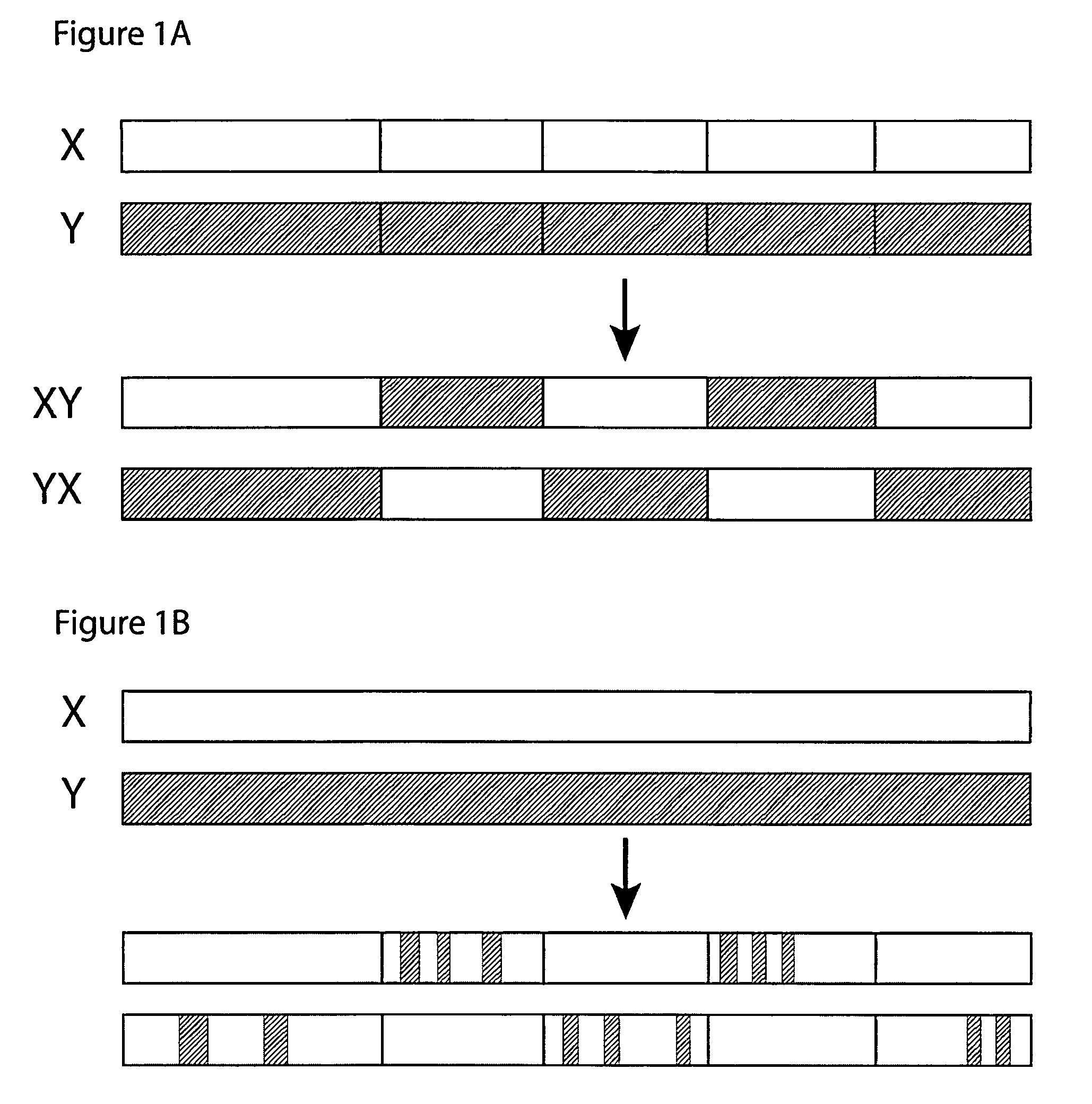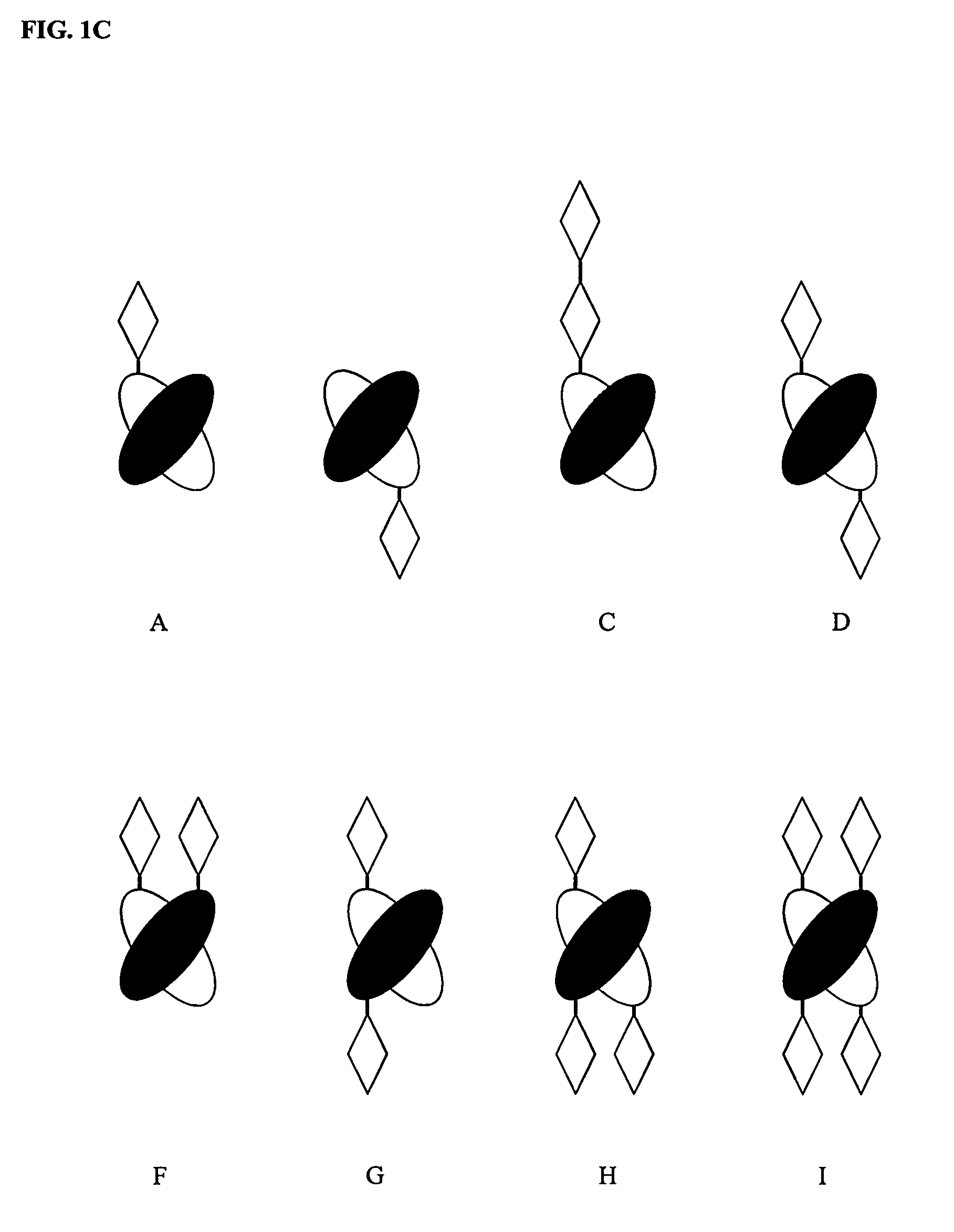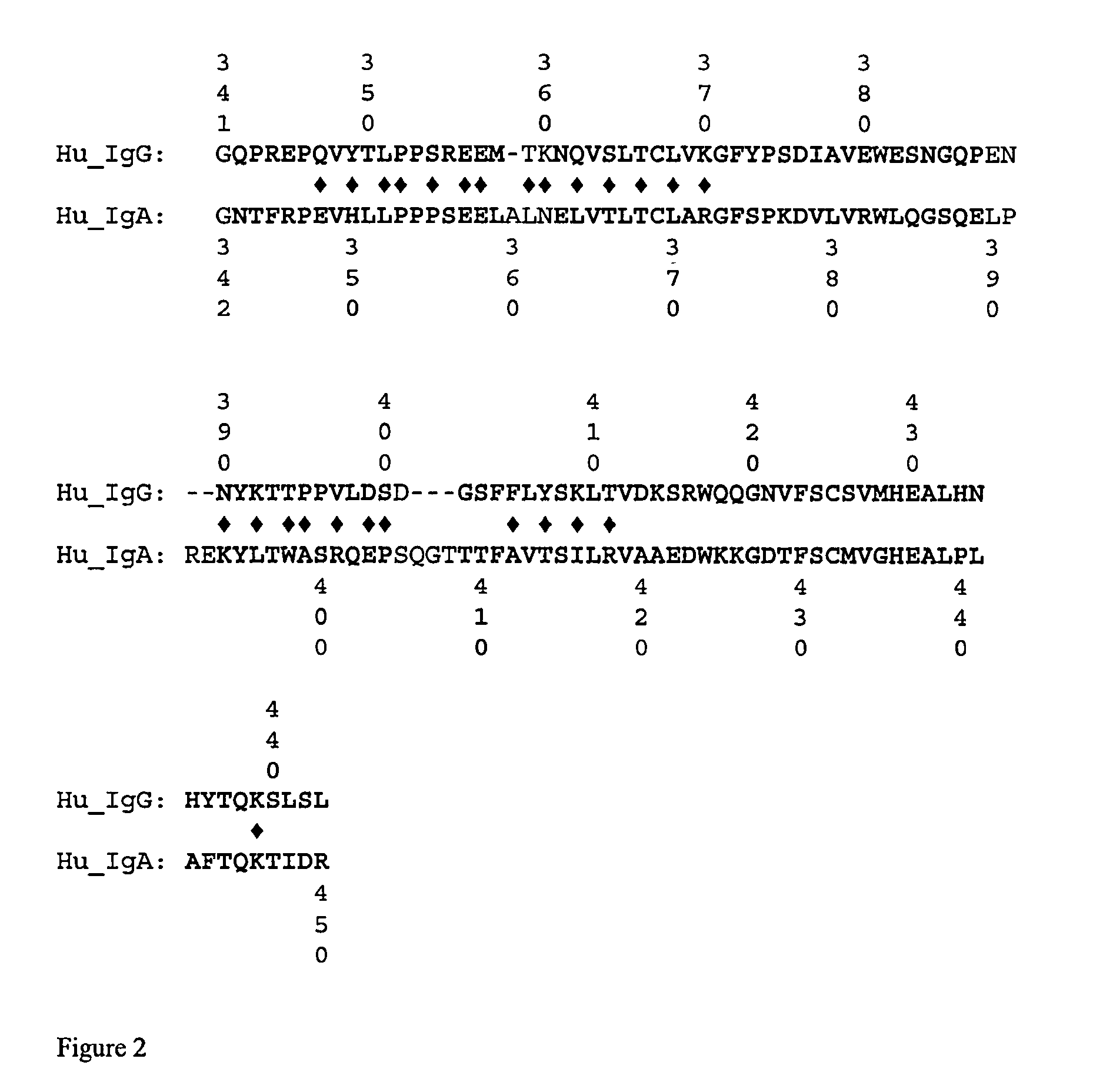Engineered heterodimeric protein domains
a technology of heterodimer protein and domain, applied in the field of engineered heterodimer protein domain, can solve the problems of difficult to separate the desired species from the undesired species, and do not provide general techniques for the construction of multimeric proteins involving multiple domain interactions, so as to enhance the specificity of multimerization and enhance assembly
- Summary
- Abstract
- Description
- Claims
- Application Information
AI Technical Summary
Benefits of technology
Problems solved by technology
Method used
Image
Examples
example 1
Identifying Homologous Structures to Become Parents of a Seed
[0109]In this set of examples, the goal is to produce two distinct CH3-homolog SEEDs that will form dimers that favor the formation of a heterodimer over formation of the two possible homodimers, thus resulting in a predominance of CH3-homolog heterodimers. The first task is to identify two or more CH3 domains that may produce this result when they are used as parents of a pair of SEEDs. The CH3 homodimer forms a dimerization interface between β-sheets. It is important to find two CH3 domains that have significant differences in this interface, in order to make an effective pair of SEEDs that will preferentially heterodimerize.
[0110]CH3 domains from IgG are structurally highly conserved across the animal kingdom, containing a classic immunoglobulin domain β-sandwich fold. While there are significant differences between species in the identities of the amino acids found on the outer surface, the dimerization interface surfa...
example 2
Choice of Exchange Points
[0114]Once the structural alignment is determined and the interface residues identified, the exchange points are ready to be chosen for creating the SEEDs. The CH3 homodimer has 180° rotational symmetry around an axis that runs between the domains approximately perpendicular to the beta strands (FIG. 4). Each domain has the N-terminus and C-terminus on opposite sides of the axis of symmetry. Therefore, CH3 domains dimerize in a hand-shaking manner, where only in a line down the center of the interface along the symmetry axis do residues on one side contact the same residue in the other partner. Residues on either side of that line contact the partner domain in opposite fashion: e.g., residues on the N-terminal side of the first domain make contact with residues in the second domain that are on the C-terminal side, and vice versa.
[0115]In one embodiment, a CH3-based SEED is designed to break the symmetry, making the two sides different. For example, strand ex...
example 3
Designing the Sequences of the “Full” AG and GA SEEDs
[0121]As an example, the simplest way to make a “Full” SEED would be to use pure IgA sequence on the first side of the exchange point, and pure IgG1 sequence on the second side of the exchange point. If the exchange point is properly chosen, this would result in a SEED that should fold properly and would have an IgA1-like dimerizing surface on one side (e.g., approximately half) of the domain, and an IgG-like dimerizing surface on the other side. A ‘mirror image’ SEED can be made similarly, in which the first side is composed of IgG1 sequence and the second side is composed of IgA sequence. When these two SEEDs are expressed together, they will preferentially form heterodimers because only in the heterodimer will each surface be contacting a surface on the other domain that matches its class: that is, the first half of the first SEED, which is IgA1-like, will contact the second half of the second SEED, which is also IgA1-like, whi...
PUM
| Property | Measurement | Unit |
|---|---|---|
| length | aaaaa | aaaaa |
| three-dimensional structures | aaaaa | aaaaa |
| nucleic acid | aaaaa | aaaaa |
Abstract
Description
Claims
Application Information
 Login to View More
Login to View More - R&D
- Intellectual Property
- Life Sciences
- Materials
- Tech Scout
- Unparalleled Data Quality
- Higher Quality Content
- 60% Fewer Hallucinations
Browse by: Latest US Patents, China's latest patents, Technical Efficacy Thesaurus, Application Domain, Technology Topic, Popular Technical Reports.
© 2025 PatSnap. All rights reserved.Legal|Privacy policy|Modern Slavery Act Transparency Statement|Sitemap|About US| Contact US: help@patsnap.com



